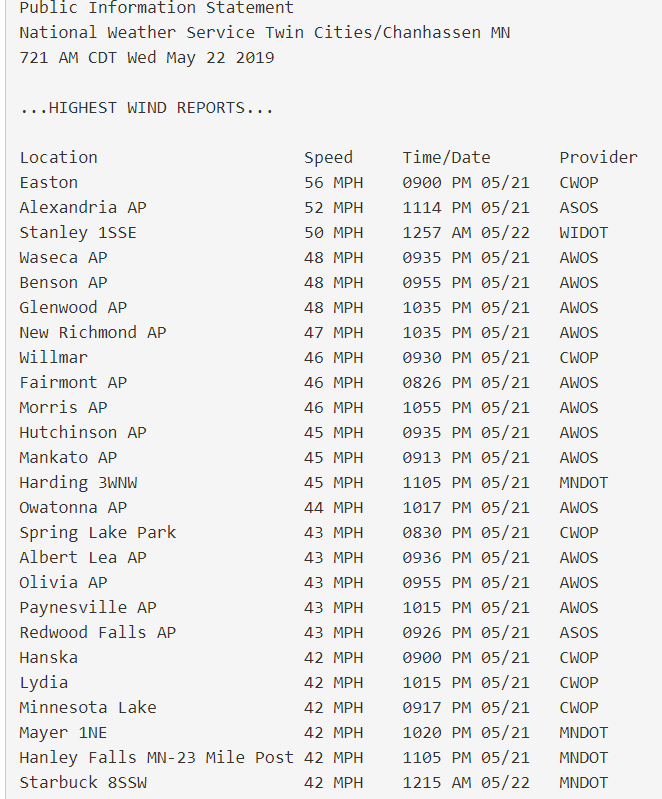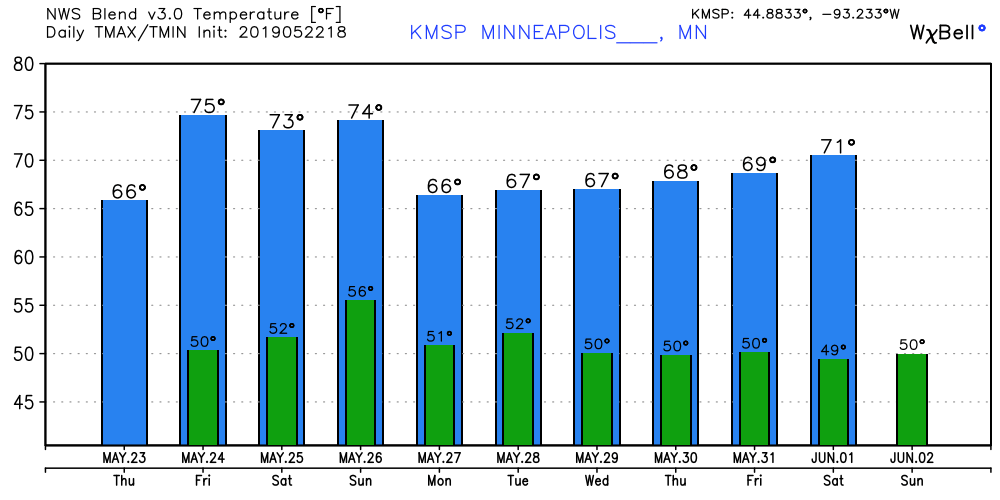2 for 3 Memorial Day weekend; will 5G mess up weather forecasts?
Our latest weather soaker delivered as advertised. Rainfall totals pushed an inch in many Minnesota towns in the past 24 hours. And much of central Minnesota has picked up a month's worth of rain in the past week with widespread 2 to 4-inch totals.
Windy too
Wind gusts topped 50 mph in some spots with our latest system.

Brighter Thursday
Create a More Connected Minnesota
MPR News is your trusted resource for the news you need. With your support, MPR News brings accessible, courageous journalism and authentic conversation to everyone - free of paywalls and barriers. Your gift makes a difference.
Our weather takes a turn for the brighter and milder the next few days. Three of the next 4 days look brighter and warmer. Another rain system arrives on Friday. Where have I seen this movie before?
NOAA's GFS forecast model loop below shows a brighter Thursday, the rain system Friday, then a sunny bubble of high-pressure Saturday and Sunday before a rain system moves in for Memorial Day.

Milder weekend
The latest temperatures numbers for Saturday and Sunday look very pleasant. Highs around 75 look likely for the Twin Cities and much of Minnesota this weekend. Rain chances Memorial Day and northwest flow bring cooler temperatures that linger into next week. But the timing looks good for Saturday and Sunday.

Can 5G pollute weather satellites?
This one is interesting. The advent of 5G technology can create problems for weather satellites that analyze water vapor. This critical function can throw off storm assesment. Some forecasteers are saying it could reduce forecast accuracy by 30-percent.
Wired has a good write up.
IF YOU HAD a choice between a better, faster cell phone signal and an accurate weather forecast, which would you pick? That’s the question facing federal officials as they decide whether to auction off more of the wireless spectrum or heed meteorologists who say that such a move could throw US weather forecasting into chaos.
On Capitol Hill Thursday, NOAA’s acting chief, Neil Jacobs, said that interference from 5G wireless phones could reduce the accuracy of forecasts by 30 percent. That's equivalent, he said, to the quality of weather predictions four decades ago. “If you look back in time to see when our forecast scale was roughly 30 percent less than today, it was 1980,” Jacobs told the House Subcommittee on the Environment.
Jordan Gerth, a research meteorologist at the University of Wisconsin, Madison, has been studying this issue as part of a group at the American Meteorological Society. He says that while the FCC can switch which regions of the spectrum it allocates to phone companies, forecasters are stuck. That’s because water vapor emits a faint signal in the atmosphere at a frequency (23.8 GHz) that is extremely close to the one sold for next-generation 5G wireless communications (24 GHz). Satellites like NOAA's GOES-R and the European MetOp monitor this frequency to collect data that is fed into prediction models for upcoming storms and weather systems.
Stay tuned on this one.